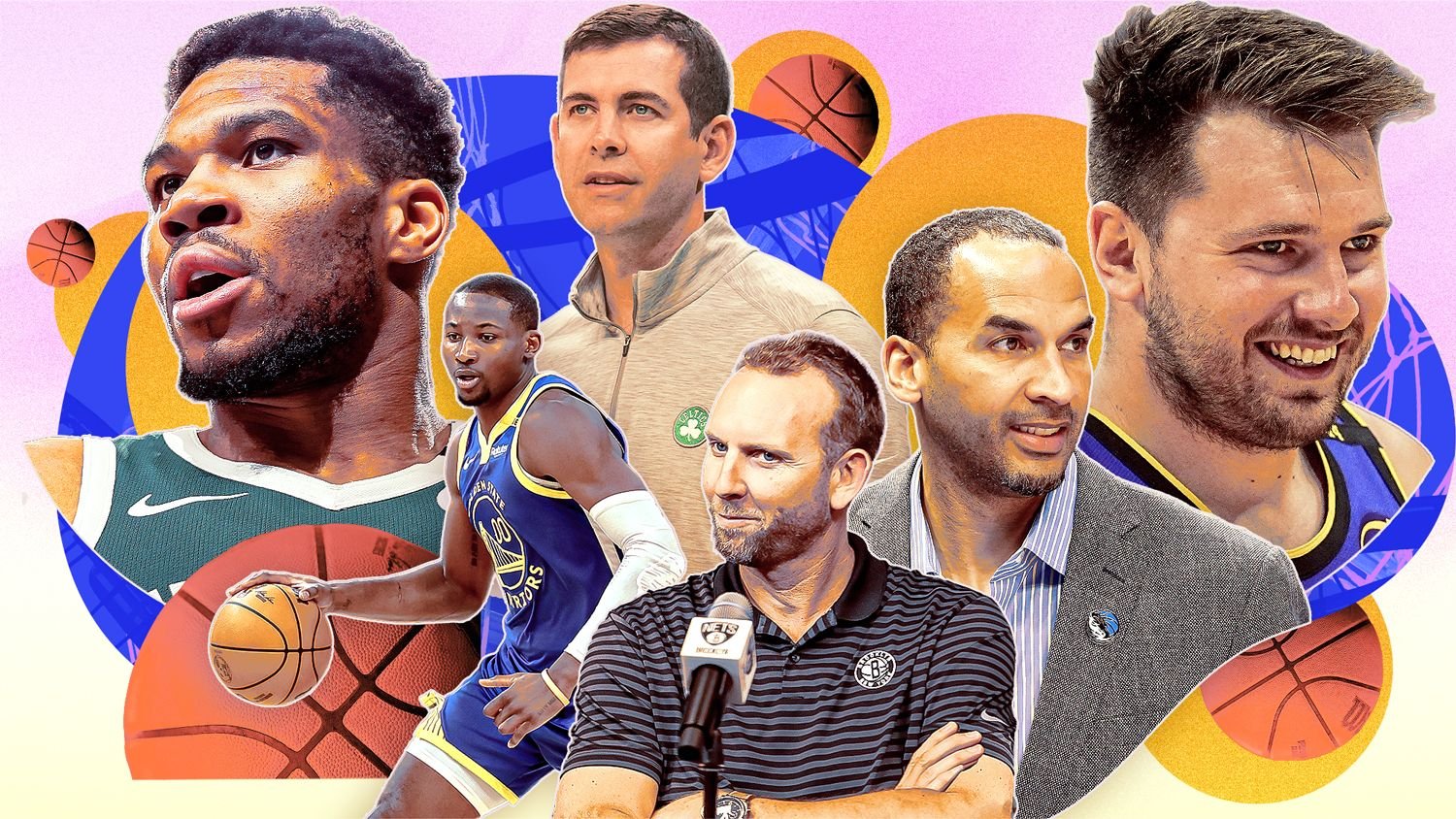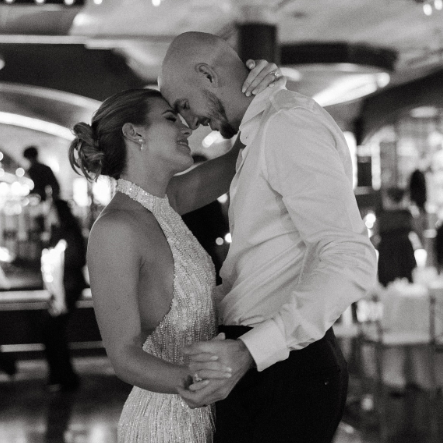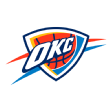



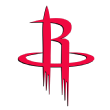

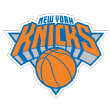

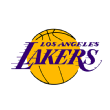

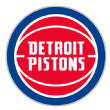
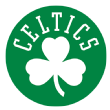
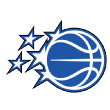
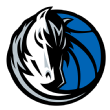


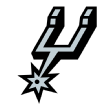
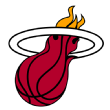
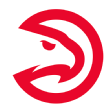
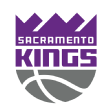


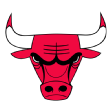



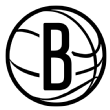
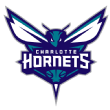

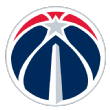
NBA free agency officially begins Monday at 6 p.m. ET. Which teams will make the biggest splashes?
Will the Los Angeles Lakers finally get a rim-running center to pair with Luka Doncic and LeBron James? Which franchises will make a run at restricted free agent Jonathan Kuminga? Will the Indiana Pacers bring back center Myles Turner? And what will the Brooklyn Nets do with all that cap space?
ESPN NBA insiders Chris Herring, Zach Kram, Bobby Marks and Kevin Pelton are breaking down how every team can win its offseason, including one move each franchise should make this summer to help ensure it does.
Note: Team order is based on ESPN’s post-Finals NBA Power Rankings.
Jump to a team:
ATL | BOS | BKN | CHA | CHI | CLE
DAL | DEN | DET | GS | HOU | IND
LAC | LAL | MEM | MIA | MIL | MIN
NO | NY | OKC | ORL | PHI | PHX
POR | SAC | SA | TOR | UTA | WAS
How they ace their offseason: With all 15 players under full NBA contract through 2025-26 and just one rotation member (the indispensable Alex Caruso) older than age 27 in the top 10 in playoff minutes, extensions are the Thunder’s main priority. Chet Holmgren and Jalen Williams are eligible for rookie extensions, while Shai Gilgeous-Alexander could sign a supermax-designated veteran extension now or wait until 2026 and add five full years to his deal. Getting all three signed would keep Oklahoma City’s core together through its prime.
One move they should make: Try to persuade Gilgeous-Alexander, Holmgren and Williams to take slightly less than their max. Certainly, the Thunder should max everyone, if necessary, but getting discounts in the second-apron era has important implications for how much of Oklahoma City’s supporting cast will stick around.
— Pelton
How they ace their offseason: With Naz Reid returning on a new five-year, $125 million deal, Minnesota is in a tricky financial position, as both Julius Randle and Nickeil Alexander-Walker can enter free agency. (Randle has a player option.) It’s possible that the Timberwolves will end up retaining all three players, but that would be a tight fit and compromise future salary space. It would make more sense to focus on Reid and Randle, and count on rising sophomores Rob Dillingham and Terrence Shannon Jr. to fill in for Alexander-Walker next season.
One move they should make: Replacing Randle’s player option with a three-year pact plus a nonguaranteed fourth year, as Bobby recently proposed, would strike the right balance between a push to win in the present and a desire to remain flexible in the future. Randle is one of the sturdiest regular-season contributors in the league, and he leveled up as a valuable playoff performer this spring.
— Kram
How they ace their offseason: They should heed the advice of Nikola Jokic. “We definitely need to figure out a way to get more depth,” Jokic said after losing in the second round. “It seems like the teams that have longer rotations, the longer benches, are the ones who are winning. Indiana, OKC, Minnesota.” The Nuggets’ reserves averaged the third-fewest regular-season minutes and fourth-fewest points per game. Improving the depth, however, comes with roadblocks. Similar to last offseason, the Nuggets’ options once again consist of relying on their former draft picks (Peyton Watson, Julian Strawther, Jalen Pickett, Hunter Tyson and DaRon Holmes II), along with the $5.7 million tax midlevel and veteran minimum exceptions to sign free agents. They could explore the trade market, but that would likely come at the cost of starter Michael Porter Jr. Because the Nuggets are a first-apron team, they are not allowed to take back more money in a trade.
One move they should make: First, they can’t make the same mistake as last year and sign a player to the $5.7 million exception who is not part of the rotation. Dario Saric signed the same exception and averaged the fewest minutes in his career. Though the Nuggets will get a boost with last year’s first-round pick, Holmes, returning after an Achilles injury, there is still a priority to find a backup center to Jokic. The Nuggets should use the tax midlevel to sign Luke Kornet to a two-year, $11.7 million contract. The free agent big man averaged 6.0 points and 5.3 rebounds in only 18 minutes per game last season for Boston. The Celtics were plus-14.3 points per 100 possessions when he was on the court.
— Marks
How they ace their offseason: Theoretically, they could do it by keeping their roster fully intact, but that would cost more than a quarter of a billion dollars in luxury taxes for this coming season alone. That’s likely untenable in any scenario, let alone one where the 64-win Cavs are coming off a second-round playoff defeat. The likelier outcome is Cleveland finding a way forward as it trims payroll and parts ways with a key player or two — as Boston did with Jrue Holiday and Kristaps Porzingis — to get under the dreaded second apron.
One move they should make: Assuming the club’s ownership is opposed to paying an exorbitant tax bill, expect to see at least one key rotation player — Jarrett Allen, Max Strus or possibly both — on the move to alleviate the cap crunch. The Cavs have signaled they’re unlikely to bring back free agent Ty Jerome, both by trading Isaac Okoro for Lonzo Ball and by locking up Sam Merrill on a four-year deal — key moves as Cleveland awaits the return of Darius Garland following toe surgery. Anyone else the Cavs hold onto will merely drive next season’s salary number higher.
— Herring
How they ace their offseason: You could make the argument Houston has done it already. In a period of two weeks, the Rockets traded for Kevin Durant and agreed to new contracts for Fred VanVleet, Aaron Holiday, Jae’Sean Tate and Jeff Green. They also signed coach Ime Udoka to an extension. The Durant trade was significant not just because the team acquired a top-10 player but also because its depth was kept largely intact.
One move they should make: Let’s expand this to multiple moves. The first is to sign Dorian Finney-Smith (if he opts out of his contract with the Lakers) to a two-year, $28 million contract. The VanVleet restructured contract (they reduced his $44.9 million team option to nearly $20 million) gives Houston the flexibility to use the full non-tax midlevel exception and not exceed the first apron. The team would, however, need to waive the $8 million non-guaranteed contract of Jock Landale. The second and most important move is to sign Durant, Jabari Smith Jr. and Tari Eason to extensions. Smith and Eason are eligible to sign until Oct. 20, and Durant has until June 30, 2026, to take a two-year deal.
— Marks
How they ace their offseason: Every key player from the Pacers’ Finals run is set to return in 2025-26 — with two exceptions. The Pacers can’t do anything about Tyrese Haliburton‘s absence after the star point guard ruptured an Achilles in Game 7. But they can ensure Myles Turner is back by negotiating a new long-term deal for the free agent center. This is a must for the Pacers; they have no other depth at the position, and if Turner leaves, there will be no easy replacement available externally, either.
One move they should make: Re-sign Turner for three years and $80 million. In a vacuum, Turner might be worth more — he could reasonably ask for $90 million over three years — but a lack of cap space around the league means he could struggle to incite a bidding contest. This compromise offer would give Turner a hefty raise and long-term security while helping Indiana save money it’ll need for other extensions next summer and beyond.
— Kram
How they ace their offseason: Aside from finding a coach and implementing a new system ahead of the campaign, the Knicks need a deeper bench. The constant critique of ex-coach Tom Thibodeau was that he didn’t go to his reserves nearly enough. And there was likely truth to that, as the Knicks’ backups scored less and got fewer minutes than those on any other club. But in trading for Mikal Bridges and Karl-Anthony Towns last summer, the front office made the team more top-heavy. As the recent title runs by the Thunder and the Celtics showed, more depth is necessary to win it all.
One move they should make: Use the $5.7 million exception, but potentially stay just below the second apron, to land a player. Perhaps that means adding a sharpshooter such as Luke Kennard or a wing like Bruce Brown, players good enough to start but who could just as easily come off the bench. Separately, but related: The team must figure out a way forward with Bridges, who is eligible for an extension. How high are the Knicks willing to go on a new deal for him? And is there a world where dealing him for additional roster depth makes sense?
— Herring
How they ace their offseason: The Jimmy Butler III trade reopened the Warriors’ window to contend but also exacerbated the team’s need for shooting in the frontcourt to complement Butler and Draymond Green. Getting it this offseason could be challenging, particularly with little matching salary unless Golden State can strike a complicated sign-and-trade involving restricted free agent Jonathan Kuminga. The Warriors’ best play might be re-signing Kuminga to a contract that keeps them below the second apron and can be traded at the deadline to get what they need.
One move they should make: Re-signing veterans Kevon Looney and Gary Payton II for one year at the veterans minimum, if possible. Because of their experience, Looney and Payton would make nearly as much at the minimum as they would going elsewhere for smaller exceptions. Yet only $2.3 million would hit Golden State’s cap sheet.
— Pelton
How they ace their offseason: Besides signing Luka Doncic to an extension Aug. 2, finding the next Daniel Gafford or Dereck Lively II to complement the All-NBA guard. GM Rob Pelinka was upfront during his end-of-season news conference in acknowledging that signing or trading for a center is the first priority: “We know this offseason one of our primary goals is going to be to add size in our frontcourt at the center position.” Finding one will be tricky. Los Angeles has only the $5.7 million exception to use on a below-average class of free agent centers. It does, however, have more than $60 million in expiring contracts (Rui Hachimura, Gabe Vincent, Maxi Kleber and, if he opts in for next season, Dorian Finney-Smith) along with a 2031 or 2032 unprotected first-round pick. The Lakers also have the right to swap first-round picks in five of the next seven seasons.
One move they should make: Trade for the Trail Blazers Robert Williams III and then sign Brook Lopez to the tax midlevel exception. Yes, the Lakers would be bringing in two starting centers, but Williams has played 40 or fewer games in three straight seasons. Because the Lakers are over the first apron and not allowed to take back more money in a trade, any package for Williams would start with some combination of Vincent, Jarred Vanderbilt and/or Shake Milton.
— Marks
How they ace their offseason: The Clippers’ top priority is to extend James Harden, then figure out how to improve an already strong roster at the edges. The Clippers have an excellent two-way core but little back-end depth, which could prove especially harmful given the roster’s age and injury history. If Nicolas Batum (who declined his $4.9 million player option) leaves this summer, Bogdan Bogdanovic and Derrick Jones Jr. will be the only reliable reserves.
One move they should make: Bring free agent point guard Chris Paul back to Los Angeles, reuniting him with Harden and improving the team’s backcourt depth. Last season, when Harden and Kawhi Leonard were on the bench, the Clippers scored just 107.6 points per 100 possessions, per Cleaning the Glass, which ranked in the 14th percentile leaguewide. Even as he enters his 40s, Paul is a strong table setter, has a welcome history with the franchise and just played all 82 games for the San Antonio Spurs.
— Kram
How they ace their offseason: The Pistons, fresh off a playoff berth and one of the biggest turnarounds in NBA history, don’t have to make a major splash to come out winners this summer. They simply need to carefully prioritize which of their three free agent wings — Malik Beasley, Tim Hardaway Jr. and Dennis Schroder — they want to bring back while potentially making one external signing for a difference-maker. For those who’d like to see them do more, keep in mind they’ll be getting 23-year-old guard Jaden Ivey (who averaged almost 18 points, 4 boards and 4 assists on good efficiency) back from injury.
One move they should make: Sign restricted free agent Santi Aldama away from the Grizzlies while re-signing Beasley. It wouldn’t be easy to snatch Aldama from Memphis, but the floor-spacing 24-year-old would give the Pistons added reliability at the backup power forward spot, a position they were hindered at during the playoffs when Isaiah Stewart went down with an injury. Re-signing Beasley, who ranked second in the NBA with 319 triples last season, should also be a priority.
— Herring
How they ace their offseason: The Celtics have already accomplished the most important task of their offseason, ducking under the second apron by trading Kristaps Porzingis and Jrue Holiday for Georges Niang and Anfernee Simons, respectively. Those moves project to save Boston some $260 million next season in combined salary and taxes. But with Porzingis gone and Al Horford and Luke Kornet hitting free agency, Boston has no reliable big men on its roster, and it should aim to fill that hole while staying below the punitive second-apron threshold.
One move they should make: If the Celtics can reroute Niang and trade Sam Hauser — who should be a desirable target as a career 42% 3-point shooter and underrated defender — it will open around $18 million in additional space. That would leave enough room to re-sign Horford and Kornet, keeping Boston’s roster framework in place for Jayson Tatum‘s return in a year.
— Kram
How they ace their offseason: The Magic are similar to the Rockets in that they got most of their business done before the official start of free agency. They added Desmond Bane and then drafted Jase Richardson and Noah Penda. They are also likely to sign Paolo Banchero to a five-year, $247 million rookie max extension. Even with the Bane addition and Jalen Suggs healthy, there is still a need to sign a veteran playmaker. Last season, the Magic averaged the fewest assists per game in the league.
One move they should make: Sign Tyus Jones to a two-year, $14 million contract with a player option in the final season. Jones had a 5-to-1 assist-to-turnover ratio last season in Phoenix and has averaged at least 10 points in three straight seasons. He has ranked in the 90th percentile in five of the past seven seasons in assists-to-usage, per Cleaning the Glass.
— Marks
How they ace their offseason: The combination of trading for Anthony Davis and landing Cooper Flagg with the No. 1 pick has left the Mavericks with a crowd in the frontcourt and not enough ballhandling to fill in during Kyrie Irving‘s knee injury absence. Ideally, Dallas would swap Daniel Gafford (trade-eligible despite striking an extension) and forward depth for a guard who can run the show while Irving is sidelined and then slide to the wing when Irving returns.
One move they should make: Jrue Holiday would have fit that role, but so could his former Celtics teammate Derrick White. Would a package of Gafford, P.J. Washington and draft picks tempt Boston into moving White, who will be 32 by 2026-27? White better fits Mavs GM Nico Harrison’s timetable, which is built around Davis and Irving.
— Pelton
How they ace their offseason: The Grizzlies already made one of the biggest moves of the offseason when they dealt third star Desmond Bane to Orlando for Kentavious Caldwell-Pope, Cole Anthony, four first-round picks and a first-round swap. With that move in the books, Memphis’ next priority is to lock in an extension for star big man Jaren Jackson Jr.
One move they should make: An extension and possible renegotiation for Jackson, the former Defensive Player of the Year who would otherwise be set to hit unrestricted free agency next summer. Memphis can make trades (John Konchar could be a candidate to be dealt) and renounce certain free agent cap holds (Luke Kennard and Marvin Bagley III, for example) to get further under the limit and offer Jackson more money in an extension. Securing him and striking a new deal for restricted free agent Santi Aldama would be steps in the right direction.
— Herring
How they ace their offseason: Keep Giannis Antetokounmpo happy. The Bucks will be hard-pressed to build a fully competitive roster next season with Damian Lillard making $54 million while rehabbing from an Achilles tear, but they will be more concerned about surviving the “gap year” without a Giannis trade request. That means using every lever at their disposal to round out a more competitive roster around Antetokounmpo, including decisions on whether to re-sign or replace free agents Brook Lopez and Gary Trent Jr.
One move they should make: Trade for Cavaliers forward Dean Wade, who would fit into Milwaukee’s $7.2 million trade exception. Wade might be expendable in Cleveland, a second-apron team that would save a lot of money by trading him, but he’d be an excellent fit in Milwaukee’s frontcourt. Wade is injury-prone, but he’s a solid shooter (37% on 3-pointers in his career) and stout defender, and the Cavaliers have consistently been better with him on the floor.
— Kram
San Antonio Spurs
How they ace their offseason: By keeping the path clear for a Giannis Antetokounmpo trade. There’s no reason to believe based on current reporting that the Bucks star will be moved imminently, but with their extra draft picks coming years into the future, the Spurs can afford to wait. San Antonio will want to keep its options open by acquiring players this summer via trade or the non-taxpayer midlevel exception who would return their value if included in an Antetokounmpo deal down the road. The more they can help space the floor for the Spurs’ young guards and De’Aaron Fox in the meantime, the better.
One move they should make: Pair Victor Wembanyama with his frontcourt partner on the French national team, Guerschon Yabusele. Yabusele is an unrestricted free agent, and the Philadelphia 76ers would have to use an exception to re-sign him for appreciably more than the minimum, making him a realistic target for San Antonio.
— Pelton
How they ace their offseason: Find a way to acquire restricted free agent Jonathan Kuminga. The Heat do not have the cap space to sign Kuminga outright to an offer sheet and would have to entice Golden State with a package of players and draft picks. The Heat are allowed to trade up to two future firsts. The addition of Kuminga would bring athleticism to a starting lineup that consists of Tyler Herro, Bam Adebayo and Kel’el Ware.
One move they should make: There are complexities in trading for Kuminga. First, because Miami intends to sign Davion Mitchell to a two-year, $24 million contract, it is right at the first apron, which would be triggered in a sign-and-trade. Second, Kuminga’s contract going out would count as only half of his salary for trade purposes. Because of this, a third team, perhaps Brooklyn, would have to take back a player such as Duncan Robinson to make the deal work.
— Marks
How they ace their offseason: The Hawks already took one enormous step in the right direction this past week by nabbing rim protector and floor spacer Kristaps Porzingis from the salary-shedding Celtics in a three-team deal. The next step forward is twofold: Try to extend four-time All-Star Trae Young on a less-than-max deal — a reasonable pursuit, given the team’s repeated trips to the play-in round with him making max money — and to land a solid veteran backup for the floor general to bolster a rotation that should feel good about its chances to make noise in a wide-open, injury-plagued East.
One move they should make: Try their best to swing a deal to have Minnesota sign and trade free-agent wing Nickeil Alexander-Walker to Atlanta. The Wolves just committed five years and $125 million to Naz Reid and still have to figure how they want to handle Julius Randle moving forward. The financial questions facing Minnesota could allow the Hawks, who are beneath the cap and have a $13 million trade exception from when they sent Bogdan Bogdanovic to the Clippers, to swoop in and make a key acquisition. Alexander-Walker is precisely the sort of versatile player worth adding to their improved rotation.
— Herring
How they ace their offseason: For all the focus on the Kings’ lack of a true point guard, they were 12th in offensive rating after the All-Star break. A 22nd-ranked defense caused Sacramento to fall short of its second playoff spot in the past three seasons. With below-average defenders as their leading scorers (DeMar DeRozan, Zach LaVine and Domantas Sabonis), the Kings need to support them with as many quality defenders as possible. Ideally, they would add another player with forward size for when Keegan Murray is deployed defensively on the perimeter.
One move they should make: A deal built around sending DeRozan to Dallas for P.J. Washington and draft picks. The Mavericks’ need to take back less salary than they send out complicates the parameters, but Dallas could include Klay Thompson or Naji Marshall and Dwight Powell to make a deal work.
— Pelton
Philadelphia 76ers
How they ace their offseason: Three bright spots emerged from the 76ers’ otherwise rotten season: Jared McCain, who led all rookies in points per game; Quentin Grimes, who averaged 21.9 PPG after arriving in a midseason trade; and Guerschon Yabusele, who was a strong all-around contributor in his return to the NBA. McCain will be back next season after tearing a meniscus, but Philadelphia must be proactive to retain the other two: Grimes is a restricted free agent and Yabusele is unrestricted.
One move they should make: Beyond re-signing Grimes and Yabusele, the 76ers could take a bigger swing by building a trade around Paul George for Michael Porter Jr. This deal would make sense for both sides: The Nuggets have been interested in George before, and he’d give them a higher ceiling around Nikola Jokic, while the 76ers would get younger and gain future financial flexibility with Porter. After how George’s first season in Philadelphia went, the team should pursue a reset if possible.
— Kram
How they ace their offseason: Now that the Blazers have swapped Anfernee Simons for Jrue Holiday, the next order of business is finding a new home for forward Jerami Grant. Grant missing all but two games after March 1 helped Portland avoid reckoning with the fact that he no longer merits starting at forward ahead of Deni Avdija and Toumani Camara. Grant still has three years and more than $100 million left on his contract, meaning the Blazers might have to incentivize a team to send back a shorter deal in return.
One move they should make: Get Camara extended for as long as possible. Portland could add three years and $64.5 million to his minimum team option for 2025-26, or decline that and offer $89.2 million over four years. Indiana made the latter move with Andrew Nembhard last summer and surely doesn’t regret it.
— Pelton
How they ace their offseason: On draft night, Bulls GM Marc Eversley told reporters he didn’t want to “skip steps” in his team’s semi-rebuild. That’s a prudent approach for a franchise that has lacked direction for most of the past decade. The Bulls would look foolish if they made any aggressive win-now moves to try to take advantage of a lackluster Eastern Conference field; they’re not as close to contention as their 17-10 record after the All-Star break might suggest.
One move they should make: Extend restricted free agent guard Josh Giddey, who averaged nearly a triple-double from mid-February on. But Chicago — which has retained Zach LaVine, Nikola Vucevic and Patrick Williams at inflated numbers in recent offseasons — shouldn’t go overboard with its offer to Giddey, who still has obvious limitations in a playoff setting and likely won’t have many outside suitors. Only Brooklyn has meaningful cap space, and the Nets shouldn’t have much interest in Giddey after using multiple first-round picks on players at the same position. If the Bulls’ offer climbs into, say, Immanuel Quickley‘s range (five years, $175 million), they’ve made a mistake.
— Kram
How they ace their offseason: Find a way for Bradley Beal to take a contract buyout. Even if Beal did not have a no-trade clause, his $110 million salary owed over the next two seasons would be difficult to move. If Beal reduces his salary by $28 million (the amount of a two-year non-tax midlevel exception) and then get waived, Phoenix will not only save over $200 million but also operate under both aprons. The Suns would then be allowed to take back more money in a trade and, most importantly, aggregate contracts sent out.
One move they should make: Sign Chris Paul to a one-year, $3.6 million contract. How fitting would it be for the Suns to sign the player they traded for Beal? The 40-year-old Paul could not only be a mentor to Jalen Green but also help Phoenix on the court. In addition to playing 82 games in 2024-25, Paul has averaged at least seven assists in four of the past five seasons.
— Marks
How they ace their offseason: My ideal offseason surely would not have included a trade for Jordan Poole, though making that move did give the Pelicans access to their non-taxpayer midlevel exception to add depth. In particular, New Orleans can use as many players with size to play power forward as possible given Zion Williamson‘s injury history. The trouble is free agency offers few such players.
One move they should make: Make a run at Sacramento forward Jake LaRavia, who is in an unusual situation. Because the Kings acquired LaRavia after the Grizzlies declined his rookie option, they’re limited to offering him a starting salary of $5.2 million. The Pelicans could potentially double that to lure him away.
— Pelton
How they ace their offseason: After parting ways with longtime president Masai Ujiri, the Raptors’ next moves should be reducing salary commitments while developing a better roster blend. For a team that might not be in the playoffs next year, Toronto — with Scottie Barnes, Brandon Ingram, Immanuel Quickley and RJ Barrett — has considerable money on its books. Those four players alone are set to make $137 million for 2025-26, which could send the Raptors into luxury tax territory. Dealing Barrett, who will earn nearly $28 million this year, for two or three players would not only make the team less top-heavy, it would also ease the roster logjam by giving Toronto more digestible salaries to include in future trade talks.
One move they should make: Trade Barrett for future assets and a couple of smaller contracts. The team is reportedly open to dealing the southpaw, who is coming off the two best seasons of his career — he averaged at least 20 points in both, while logging a career high in assists per game in 2024-25 — as he enters his prime. Could Toronto find a club willing to part ways with a future first to add Barrett’s scoring? If so, such a pick could be helpful in an eventual package if Antetokounmpo decides he wants out of Milwaukee.
— Herring
How they ace their offseason: Above all else, they’ll maximize opportunities to collect more assets and ensure that they’re at or near the top of next year’s draft lottery. This past season was obviously a different story after the Nets got out to a better-than-expected start — even sitting in play-in position as late as Dec. 20 with an 11-16 mark — that forced them to trade away talent multiple times (Dorian Finney-Smith, Dennis Schroder) during the season to slow their winning pace. It resulted in the Nets finishing No. 8 in the lottery. Trading earlier this time around could leave the club better positioned to get a top pick.
One move they should make: Dealing veteran forward Cameron Johnson, the Net with the most market value. As a two-way player and a 39% shooter from 3 for his career, Johnson is a fit for any contending club. Aside from trading Johnson, while ensuring that there are enough seasoned vets to help mentor their record-breaking five first-round picks, the Nets’ priority should be to sign restricted free agent and leading scorer Cam Thomas to a reasonable deal going forward.
— Herring
How they ace their offseason: Under new management, the Hornets have adopted a slow, steady approach to their rebuild, and that seems unlikely to change this summer. Charlotte traded Mark Williams (again) on draft night, picking up two first-round picks in the process, and addressed a dearth of shooting with draftees Kon Knueppel and Liam McNeeley. The 2025-26 roster looks mostly set, and the main offseason work will be figuring out how to coax better health outcomes from LaMelo Ball and Brandon Miller, who combined for just 74 games in 2024-25.
One move they should make: Announce Moussa Diabate as the starting center. The former Clipper signed a two-way contract with the Hornets last year, and he was quietly impressive in 71 games (eight starts) with Charlotte. When the 6-foot-11 Frenchman shared the court with Ball, the Hornets outscored their opponents, per PBP Stats; when that duo also played with Miller, the Hornets had a plus-5.4 net rating. Sure, that came in a small sample, but the Hornets need all the positives they can get. Diabate is on a non-guaranteed contract for next season, but with Williams gone, he should seize the starting center role.
— Kram
How they ace their offseason: Originally, it was Ace Bailey reporting to summer league, but that changed when he landed in Salt Lake City on Saturday. It might sound simple, but the development of Bailey, Walter Clayton Jr. and recent draft picks Isaiah Collier, Cody Williams, Keyonte George, Brice Sensabaugh and Taylor Hendricks will play a critical role in how competitive the Jazz can be next season.
One move they should make: Sign Walker Kessler to a five-year, $130 million extension. Utah could have more than $70 million in cap space in 2026, and despite the low $14.6 million free agent hold, the Jazz can be aggressive. Kessler is the first player to average at least two blocks per game in each of his first three NBA seasons since Tim Duncan from 1997 to 2000. Kessler also averaged career highs in points (11.1), rebounds (12.2) and assists (1.7) and shot an NBA-best 66.3% from the field.
— Marks
How they ace their offseason: Washington already made perhaps its biggest move, flipping Jordan Poole to New Orleans for guard CJ McCollum. The Wizards figure to have about $90 million in cap space next summer, some of which they might use by turning the expiring contracts of McCollum, Khris Middleton and Marcus Smart into longer deals.
One move they should make: Call the Nuggets about swapping Middleton for Michael Porter Jr. and Dario Saric. That move would cut Denver’s tax bill this coming season and save the Nuggets $40.8 million in 2026-27 salary. Denver certainly might need a better replacement for Porter to give up its 2032 first-round pick, but it’d be worth the call.
— Pelton
[ad_2]
